Extracts
On the Sea
Selected from the Summer 2013 issue of Lapham's Quarterly.
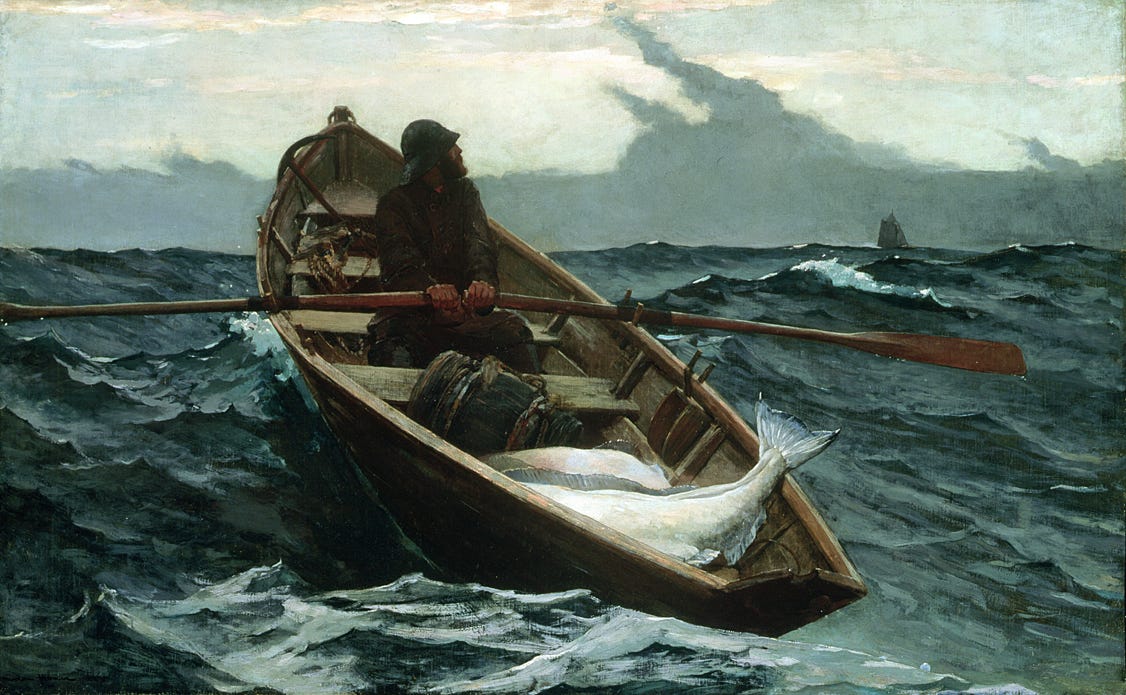
And heaved and heaved, still unrestingly heaved the black sea, as if its vast tides were a conscience, and the great mundane soul were in anguish and remorse for the long sin and suffering it had bred.
—Herman Melville, 1851
It seemed to me, in the midst of that infinite solitude, in the midst of the sea’s dark murmur, that if I spotted the light of only a single ship, I would let out a yell that could be heard at any distance.
—Gabriel García Márquez, 1955
A protracted death at sea kills even before the deathly blow is dealt, for when the eye confronts the enormity of the sea, it extends fear beyond any horizon, and this also increases the misery of death—for the dread of death is proportionate to the expanse of the sea.
—Achilles Tatius, c. 150
Man, looking into the sea— taking the view from those who have as much right to it as you have to it yourself— it is human nature to stand in the middle of a thing but you cannot stand in the middle of this: the sea has nothing to give but a well-excavated grave. –Marianne Moore, 1921
We passed freely under their high branches, lost in the shade of the waves, while at our feet, tubipores, meandrines, stars, fungi, and caryophyllidae formed a carpet of flowers sown with dazzling gems. What an indescribable spectacle!
—Jules Verne, 1868
I swam inch by inch into a dark narrow tunnel, scraping my chest on the floor and ringing the air tanks on the ceiling. In such situations a man is of two minds. One urges him on toward mystery, and the other reminds him that he is a creature with good sense that can keep him alive, if he will use it.
—Jacques Cousteau, 1943
But when she swallowed the sea surge down her gaping maw the whole abyss lay bare and the rocks around her roared, terrible, deafening— bedrock showed down deep, boiling black with sand— and ashen terror gripped the men. —Homer, c. 1185
At the same time the efforts at inspiration with their accompanying gulps of water occurred at longer and longer intervals. My mental condition was now such that I appeared to be in a pleasant dream, although I had enough willpower to think of friends at home and still retain vivid recollections of sights from my boyhood. Before finally losing consciousness, the chest pain had completely disappeared, and sensation was actually pleasant.
—James Lowson, 1892
I was set free! I dissolved in the sea, became white sails and flying spray, became beauty and rhythm, became moonlight and the ship and the high dim-starred sky! I belonged, without past or future, within peace and unity and a wild joy, within something greater than my own life, or the life of man, to life itself!
—Eugene O’Neill, 1912
For years the frigate had withstood the shocks of the winds, the billows, and the battle; for years she had borne the insignia of English valor to different and distant climes. But her years were now ended; her course was run; she was about to sink into the deep ocean forever.
—Moses Smith, 1812
I wanted to be a man on my own, control my own life, and go my own way. So I threw the books in the sea.
—Langston Hughes, 1923
And if, with these dainties to drink and eat, You prefer not a vestige of grass or tree, And a chronic state of wet in your feet, Then—I recommend the sea. –Lewis Carroll, 1861
This is not mysticism, but identification; man, building this greatest and most personal of all tools, has in turn received a boat-shaped mind, and the boat, a man-shaped soul.
—John Steinbeck, 1941
I departed, in the name of the Holy Trinity, on Easter night, with the ships rotten, worm-eaten, and full of holes. In this condition I had to cross seven thousand miles of sea, or, as an alternative, to die on the passage with my son, my brother, and so many of my people.
—Christopher Columbus, 1503
Even where it is looked upon by the guns and battlements of another nation we regard it as a kind of English cemetery, where the bones of our seafaring fathers take their rest until the last trumpet—for I suppose no other nation has lost as many ships, or sent as many brave fellows to the bottom.
—Robert Louis Stevenson, 1878
But that day, as I sat on the tranquil shore, it was possible to believe one was gazing into eternity.
—W.G. Sebald, 1995
All these ways the world is a sea, but especially it is a sea in this respect: the sea is no place of habitation but a passage to our habitations. So the apostle expresses the world, Here we have no continuing city, but we seek one to come; we seek it not here, but we seek it while we are here, else we shall never find it.
—John Donne, 1630
All this is long over. The ring of living beauty drawn about our shores was a very thin and fragile one. It had existed all those centuries solely in consequence of the indifference, the blissful ignorance of man.
—Edmund Gosse, 1907
And there I saw you fallen face down on a rough bed, with only the shore where the waves sound ceaselessly to serve as pillow on which to rest your head. –Kakinomoto Hitomaro, 690
In the autumn, when the great metropolis is so much hotter, so much noisier, so much more dusty or so much more water-carted, so much more crowded, so much more disturbing and distracting in all respects than it usually is, a quiet sea beach becomes indeed a blessed spot.
—Charles Dickens, 1851
But when there are many bathers, these perils are forgotten—numbers give courage—one can abandon oneself, without fear of the invisible, to the long, quivering, electrical caresses of the sea.
—Lafcadio Hearn, c. 1856
All is black shadow, but the lucid line Marked by the light surf on the level sand; Or where afar the ship lights faintly shine Like wandering fairy fires, that oft on land Mislead the pilgrim: such the dubious ray That wavering reason lends in life’s long darkling way. –Charlotte Smith, 1798
The touch of the sea is sensuous, enfolding the body in its soft, close embrace.
—Kate Chopin, c. 1895
What ugly sights of death within mine eyes! Methought I saw a thousand fearful wrecks; Ten thousand men that fishes gnawed upon; Wedges of gold, great anchors, heaps of pearl, Inestimable stones, unvalued jewels, All scattered in the bottom of the sea: Some lay in dead men’s skulls; and in those holes Where eyes did once inhabit, there were crept, As ’twere in scorn of eyes, reflecting gems, Which wooed the slimy bottom of the deep, And mocked the dead bones that lay scattered by. –William Shakespeare, c. 1592
All the tempestuous passions of mankind’s young days, the love of loot and the love of glory, the love of adventure and the love of danger, with the great love of the unknown and vast dreams of dominion and power, have passed like images reflected from a mirror, leaving no record upon the mysterious face of the sea.
—Joseph Conrad, c. 1880
Lapham’s Quarterly is a project of the American Agora Foundation, which is dedicated to fostering an appreciation of, and acquaintance with, the uses and value of history. Please help us continue our work. Donate today.
THE SEA
Summer 2013



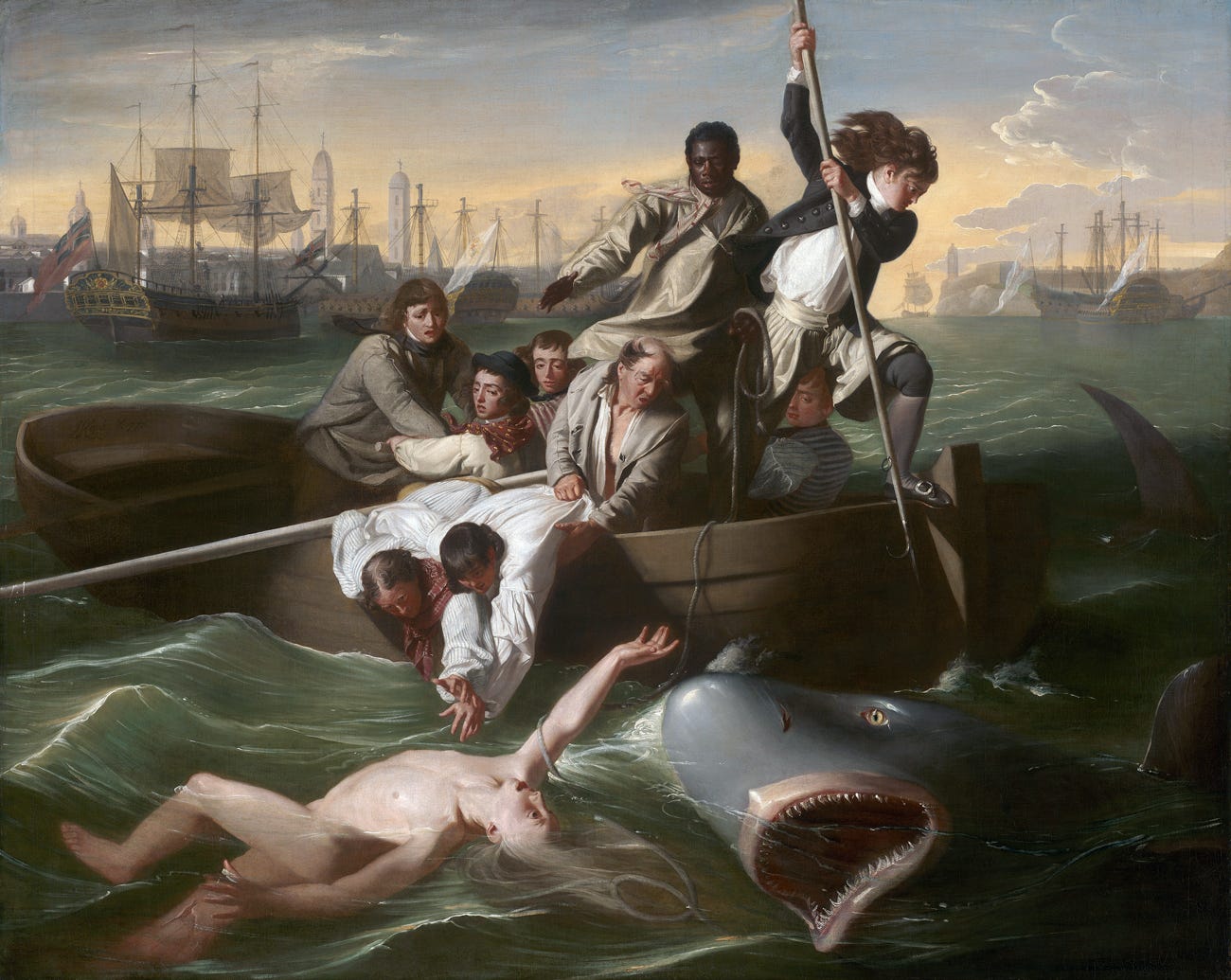
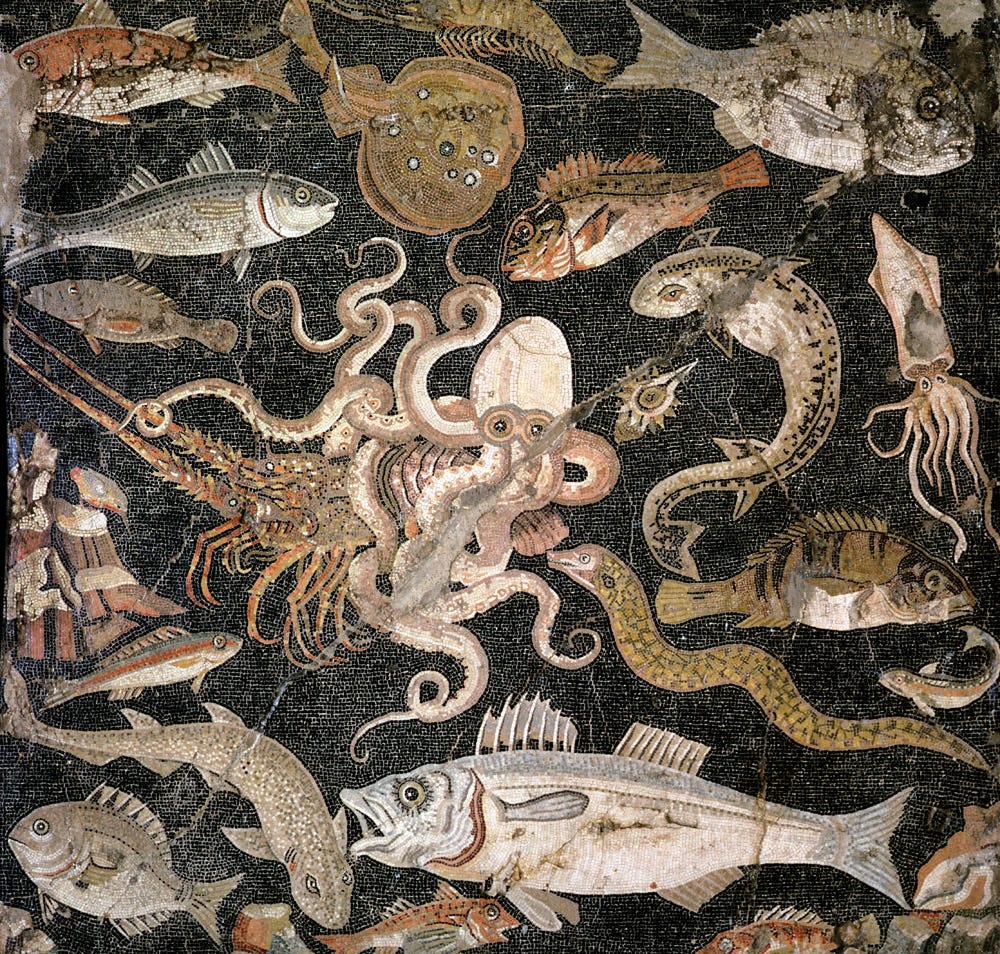
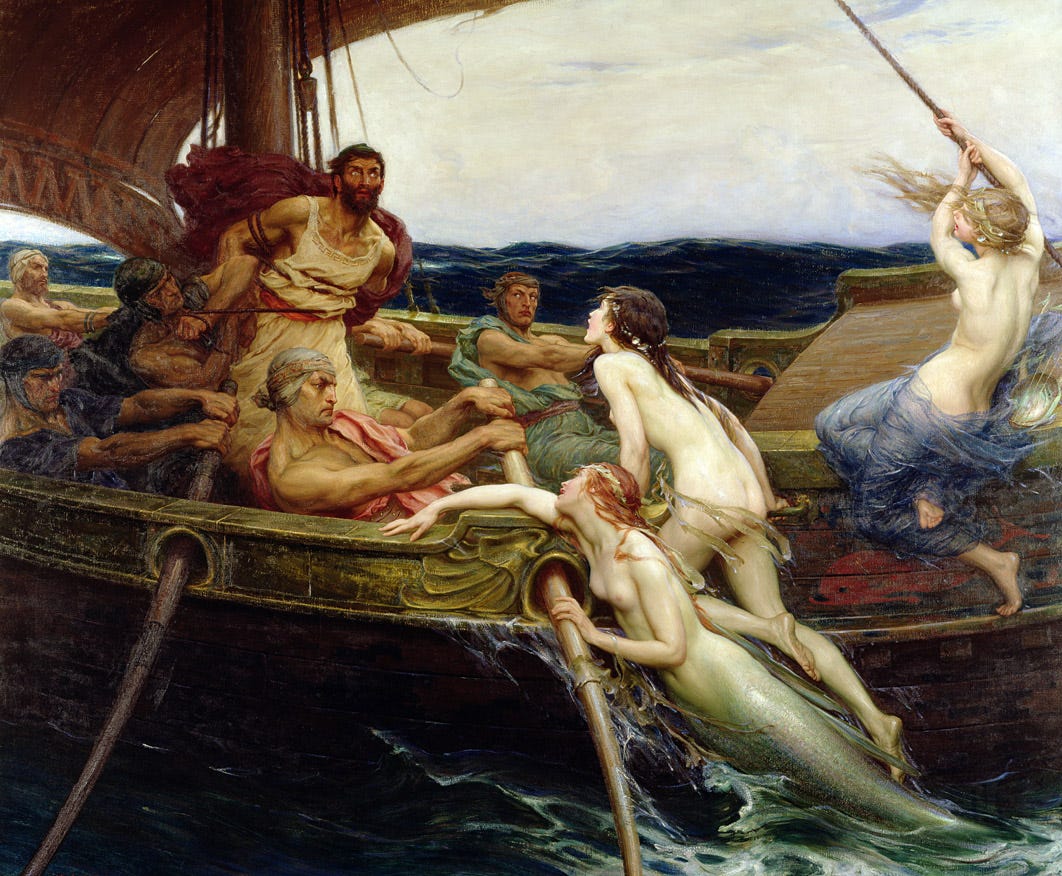
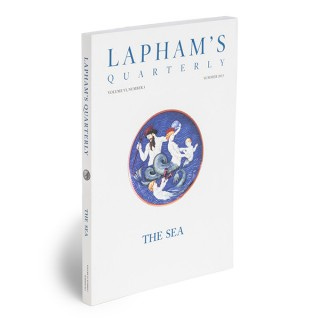
Excellent … just ask also regular fishermen.. that was García Márquez inspiration -sometimes-